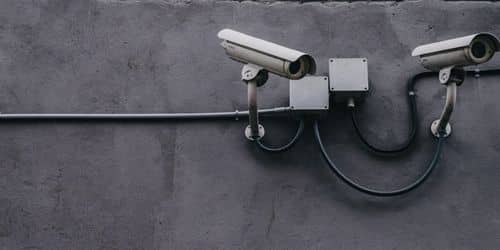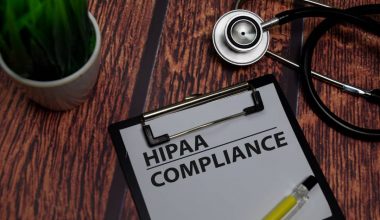Whether you work in the marketing or healthcare industry, preventing cyberattacks and physical theft should be at the top of your list. One breach can have a disastrous impact on a business, so it’s important for all companies to improve security on their servers and within their buildings.
10 Things Businesses Need to Remain Secure
Since malicious actors could try to gain access inside your building or leak sensitive data on the internet, you should use the following security essentials to prevent that from happening.
#1. A Reliable and Reputable Security Equipment Dealer
A reliable and reputable security equipment dealer, like All Security Equipment, can hook you up with quality products. For example, All Security Equipment sells LiftMaster’s access control system, which comes with some of the best commercial remotes and receivers on the market.
When looking for the right dealer, make sure they’re experienced, courteous to customers, and have a decent refund policy. They should also hire knowledgeable and respectful employees.
#2. Use Wireless Cameras to Secure the Perimeter
Traditional cameras are less secure because they can easily be truncated by cutting a loose wire. However, high-definition wireless security cameras are harder to disrupt. Wireless cameras should be installed via proper planning to ensure there aren’t any blind spots a criminal could exploit.
#3. A Risk-Aware and Prepared Workplace Culture
Every single person could be an inflection point for a business. Human error is the biggest reason why breaches occur, and a single phishing scam could or an undated software could take down your whole operation. Creating a risk-aware culture is key to your protection.
Employees should take a zero-tolerance approach to security and be prepared to tackle or inform management of threats when they happen. Open communication is a must for this.
#4. Shred or Store Sensitive Documents
While most of your documents will be locked on the computer, you may need physical copies for filing purposes. Any document that contains sensitive customer information should be shredded before they’re thrown in the garbage. Ensure nothing can be recovered from these documents. If you can’t physically destroy them, make sure they are kept in a specialized record storage facility that provides the highest security like Corodata.
#5. Restricted Entrances Accessible to Staff or Guests
Malicious actors gain entrance to businesses via tailgating, propped-open doors, stolen keys, and access cards. But turnstiles can make it hard for a person to pass through undetected. To further secure your entrances, register all authorized employees and guests in your system.
Reception should know who’s coming in at what time. If an appointment is changed, they should be notified as soon as possible. Keeping staff in the know is the best way to stay secure.
#6. Trained Security Guards For Physical Intimidation
The physical presence of a security guard can prevent criminals from entering the premises. You can either hire and train your own security guards or employ one via a third party. Be sure to train them on how to detect security threats in your company and how to handle a breach.
#7. A Cybersecurity Team That Specializes in Data
According to IBM, it took businesses an average of 277 days to identify a data breach. It only takes a few seconds for hackers to compromise your system, but if they have constant access to your data, they’ll cause more damage. That’s why you need to hire a cybersecurity team.
A cybersecurity team can outline potential threats and stop or prevent hackers from taking over your systems. With the help of these experts, you can keep your workplace servers secure.
#8. Software That Can Centralize Business Data
Hacks may go undetected if your data is spread out. If you’re storing data on individual devices instead of a single server, you’re making your data less secure. Instead, use software that can find and centralize data on one server. This will make it easier to limit access to your systems.
#9. Multiple Data Backups and Storage Devices
Tech giants like Facebook, Twitter, and Google have been hacked several times, but they’re able to restore their systems thanks to backups. Initiating real-time backups for your data can reduce downtime and keep customer data on the system in case your business is ever hacked.
The most common backup option is cloud storage, but don’t just keep your data on external servers. You should also use external hard drives (stored off-site) to back up necessary data.
#10. A Means to Remove Accounts of Ex-Employees
Past employees may intentionally or unintentionally breach your security systems. Before an ex-employee leaves the building, wipe their phones off company information and disable user accounts, cards, or passwords. Even if you trust the employee, it’s better to be safe than sorry.






